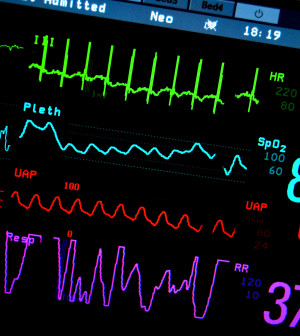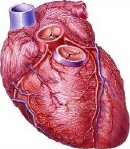- 8 Ways to Increase Dopamine Naturally
- 7 Best Breads for Maintaining Stable Blood Sugar
- Gelatin vs. Collagen: Which is Best for Skin, Nails, and Joints?
- The Long-Term Effects of Daily Turmeric Supplements on Liver Health
- Could Your Grocery Store Meat Be Causing Recurring UTIs?
- Are You Making This Expensive Thermostat Error This Winter?
- Recognizing the Signs of Hypothyroidism
- 10 Strategies to Overcome Insomnia
- Could Artificial Sweeteners Be Aging the Brain Faster?
- Techniques for Soothing Your Nervous System
Study Sheds Light on How Heart Heals Itself


New insight into the heart’s ability to repair itself could help scientists develop ways to improve recovery after a heart attack, a new study of mice suggests.
Researchers found that a signaling pathway — called the Hippo pathway — normally blocks heart repair in adult mice. When certain signals were removed, the animals’ hearts were able to regenerate after being damaged.
This was because specialized heart cells called “cardiomyocytes” were able to multiply much better after the signals were removed, an ability that is normally lost in damaged hearts, according to the researchers from the Baylor College of Medicine and the Texas Heart Institute.
“The heart is very poor at repairing itself after various types of injury including the most common injury, the myocardial infarct [heart attack],” team leader James Martin said in a news release from The Company of Biologists.
“We were very excited to see full return of cardiac function in the Hippo-mutant hearts after injury. It was the culmination of a lot of hard work and also a little good luck,” Martin said.
The study was recently published in the journal Development.
Previous research has shown that hearts can regenerate in embryos during their development, and also in newborn mice. But this ability is lost during adulthood. Some fish and amphibians can repair their hearts as adults, but it’s believed that humans lost this ability during the course of evolution.
This new finding suggests that it may be possible to reactivate the human heart’s ability to repair itself.
“The implications for treating heart disease are great. With recent advances, it is now clear that the heart muscle can be coaxed to make new muscle cells,” Martin said.
Scientists note, however, that research with animals often fails to provide similar results in humans.
More information
The U.S. National Heart, Lung, and Blood Institute has more about heart attack.
Source: HealthDay
Copyright © 2026 HealthDay. All rights reserved.










